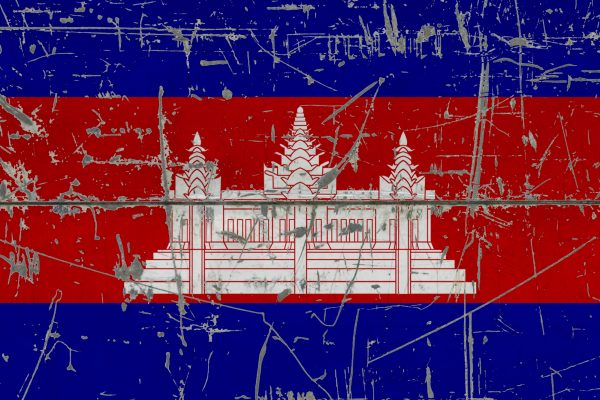Two months before national elections are due to be held, Cambodian Prime Minister Hun Sen has urged foreign nations to refrain from commenting about the state of his country in the lead-up to the poll, amid further allegations of attempts to oust his government.
Those plots include the arrest this week of three farmers, who according to one government official, were planning a Pol Pot-styled “peasant revolution.” Another involved a member of the Candlelight Party (CLP) – recently barred from contesting the election – whose apology was not accepted by Hun Sen.
Such allegations are not new.
Khmer diasporas in Australia, the United States, and France have faced similar charges in recent years, as have media groups, the CLP, and its predecessor, the outlawed Cambodia National Rescue Party, resulting in the prosecution of more than a hundred opposition supporters.
Diplomat Brief
Weekly Newsletter
N
Get briefed on the story of the week, and developing stories to watch across the Asia-Pacific.
Get the Newsletter
But the justifications for the arrests of three staffers from the Coalition of Cambodian Farmers Community (CCFC) seemed a step too far, with Khieu Sopheak, Interior Ministry spokesperson, likening the plot to the Khmer Rouge revolution.
His basis for such an unprecedented remark was the discovery of a manuscript, he said, was designed to teach people about how “to make the peasant revolution” and a claim that CCFC President Theng Savoeun had “confessed about his activities.”
“What did the peasant revolution try to do?… It was necessary to overthrow the capitalists, the oppressed classes, whoever you are, and millions of people died because of the peasant revolution,” he told CamboJaNews, one of Cambodia’s last independent media outlets.
The CCFC instructs farmers on agricultural laws and techniques and their arrests prompted about 200 farmers, nearly all women, to walk from faraway provinces into Phnom Penh, where they urged Interior Minister Sar Kheng to intervene and resolve the issue.
Advertisement
Protests are rare in Cambodia, and they marched through Phnom Penh’s streets on Tuesday winning widespread online applause with photos and videos plastered across social media.
Among the protestors was Theng Savoeun’s mother, Toch Satt, who was obviously upset by the treatment of her son, who was arrested alongside CCFC advocacy officers Nhel Pheap and Than Hach.
“My son is not a dog, he is a human being,” she told Radio Free Asia. “I regret that you arrested my son, who did nothing wrong. My son serves the interests of the people.”
Rights groups, including New York-based Human Rights Watch, and the local organizations Licadho, Adhoc, and the Cambodian Center for the Defense of Human Rights, have taken up the issue and are calling for the farmers’ release. Western countries will surely follow.
Australia, France, Germany, Britain, the United States, and the European Union have been consistent in commenting on the prosecution of dissenters, opposition supporters and democratic standards, most recently with the disqualification of the CLP from contesting the election.
It’s also their job, given the billions of taxpayer dollars that their countries have pumped into Cambodia over the last three decades, including for the Khmer Rouge tribunal, which proved beyond doubt that Pol Pot elites were behind the deaths of two million people between 1975 and 1979.
Still, Hun Sen said, according to a translation from Rasmei News and published in state-friendly media, that due to foreign interference in the past, millions of people of Cambodians have died, and called on all countries to remain silent from now until the 7th National Assembly election.
“From now until the election, please be quiet. Let us use local rules to solve the problem of democracy in Cambodia,” he was quoted as saying, under the headline “PM urges other countries to remain silent from now until the election.”
What to think?
